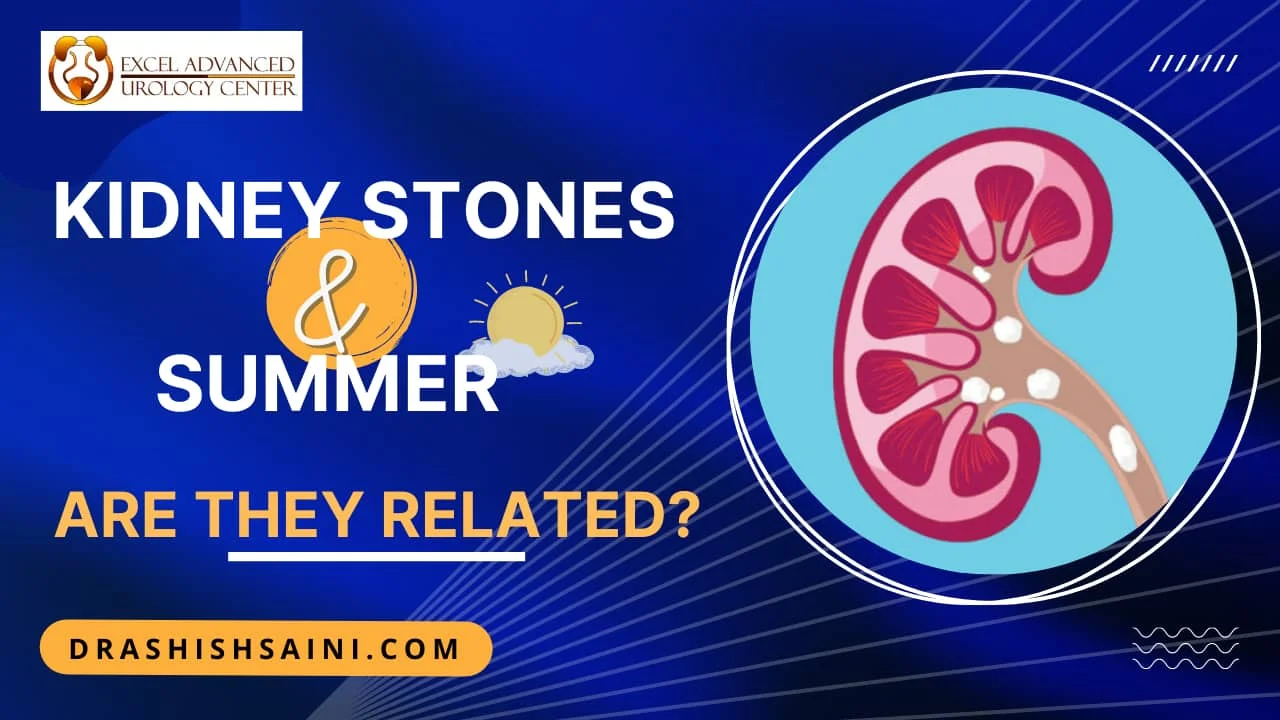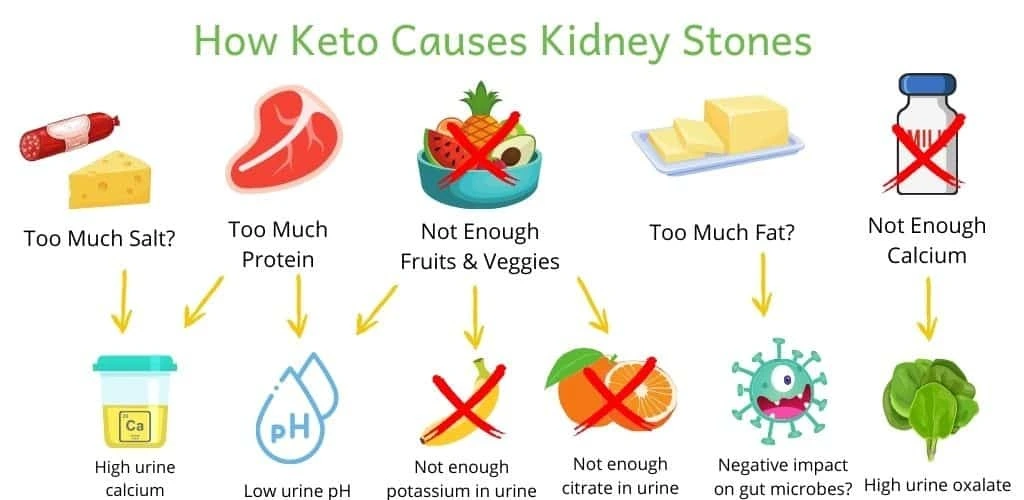



Kidney stones are small crystallized salts and minerals that could form in our kidneys due to varying reasons from low hydration to lost electrolytes, to simply increased levels of stress and mismanaged dietary habits. Its pain is one of the many painful problems that could ruin summer fun. Kidney stone laser treatment is really necessary if you are facing such issues. You wouldn't be surprised to know the relationship between kidney stones and summer. It simply burns.
Summer is the season of new beginning and adventures of a lifetime. Making memories and sustaining them. But along with flowers also grows...KIDNEY STONES!
Summer is the time for fun and relaxation. It is the time for the bright sun and cool water slides, long cold vacations, and family memories. Kidney stones are a pain and not just in the cleaning mechanism of the body. They elicit and eradicate joy, which is the essential essence of summer.
1. Keep active and Fit
2. Control your blood sugar
3. Monitor blood pressure
4. Monitor weight and maintain a healthy diet.
5. Drink plenty of fluids
6. DON'T SMOKE!
7. Be aware of the amount of OCT (pain medication) you take.
8. Have the functions of your kidney's tested if you are at high risk.
Kidney stones are hard deposits made of minerals and salts that form inside your kidneys. These stones are called so because of their crystallized form, which is formed due to the left-behind residue of salt and minerals in one's kidneys. there could be varying causes and consequences of them. Each depends on the individual's health and the care of their body. They are popularly known as Renal Calculi, Neph-lithiasis, and/or Urolithiasis. Hence, care is advised! Kidney stones and summer have an unsavoury correlation and kidney stone pain is often quite worrisome.
The kidneys are an important part of the body, a problem that has arisen due to this heat shift is that of kidney stones. It is a hardened part of the salts and mineral deposits from the blood. Kidney stones are often formed due concentration of the urine which leads to the crystallization of the minerals and salt deposits leading to the formation of what is commonly called kidney stones. Medical terms for them are called renal calculi, nephrolithiasis, and/or urolithiasis. We should leave the technicalities to specialists, like urologists.
The problem with these crystallized salt stones begins long before they get stuck in the ureters and cause further issues. These can start to crystalize, due to bodyweight issues, lack of fluids and a proper diet, and due to seasonal dehydration. These can also be formed due to health issues and medical conditions as well as due to medications for an already existing health issue.

Preventing these stone salts comes with proper nutrition and hydration. Drinking extra water dilutes the substances in the urine which leads to stones. It may help to drink some citrus beverages, like lemonade and orange juice, since the citrate in these beverages helps prevent stone formation.
The best ways include -
1. Drink a lot of water
2. Reduce salt in your system
3. eat more Fruits and Vegetables
4. Maintain a body weight, in accordance with your body index.
It is an important pointer to note that kidney stones and summer do not necessarily have a connection, but their prevalence does increases during the summer months,
You know you have a problem with these salt and mineral deposits when the stones start to move, or in some unfortunate cases get stuck in the ureters while moving to cause further damage to the cleaning unit and the individual.
This movement would elicit, which could help one demand the help they might or would need. I read somewhere that Calcium deposit stones, are harmless and do not cause any essential problems if treated with the care, that they demand. Should you find the symptoms listed below similar, don't panic, just take a deep breath, drink a glass of water and contact your nearest doctor, preferably a urologist. If not then a physician.
Since kidney stones and summer are related concepts. With their growth, comes the issue of disposing of one's body. The presence of folic crystals of salt during summer makes one susceptible to more health problems, not necessarily kidney-related. If left untreated could even lead to severe diseases and even death. Relieving the pain caused by kidney stones is done best simply by relieving the kidney stones themselves.
While these crystallized mineral deposits of body waste are considered problems of a lenient proportion, they can, however, cause a lot of damage if left untreated or ignored. Please note that kidney stones are not something that could not be helped with. Especially, during summer when the chance of getting one increases.
Please, drink ample water and take plenty of care :)
If you have any doubts, don't wait for the problem to escalate, contact India's leading urologist and andrologist Dr Ashish Saini, an expert in his field providing topmost Kidney Stone Treatment in Delhi, a combination of both experience and calibre...
DON'T HESITATE TO CALL NOW! Book an Appointment now!